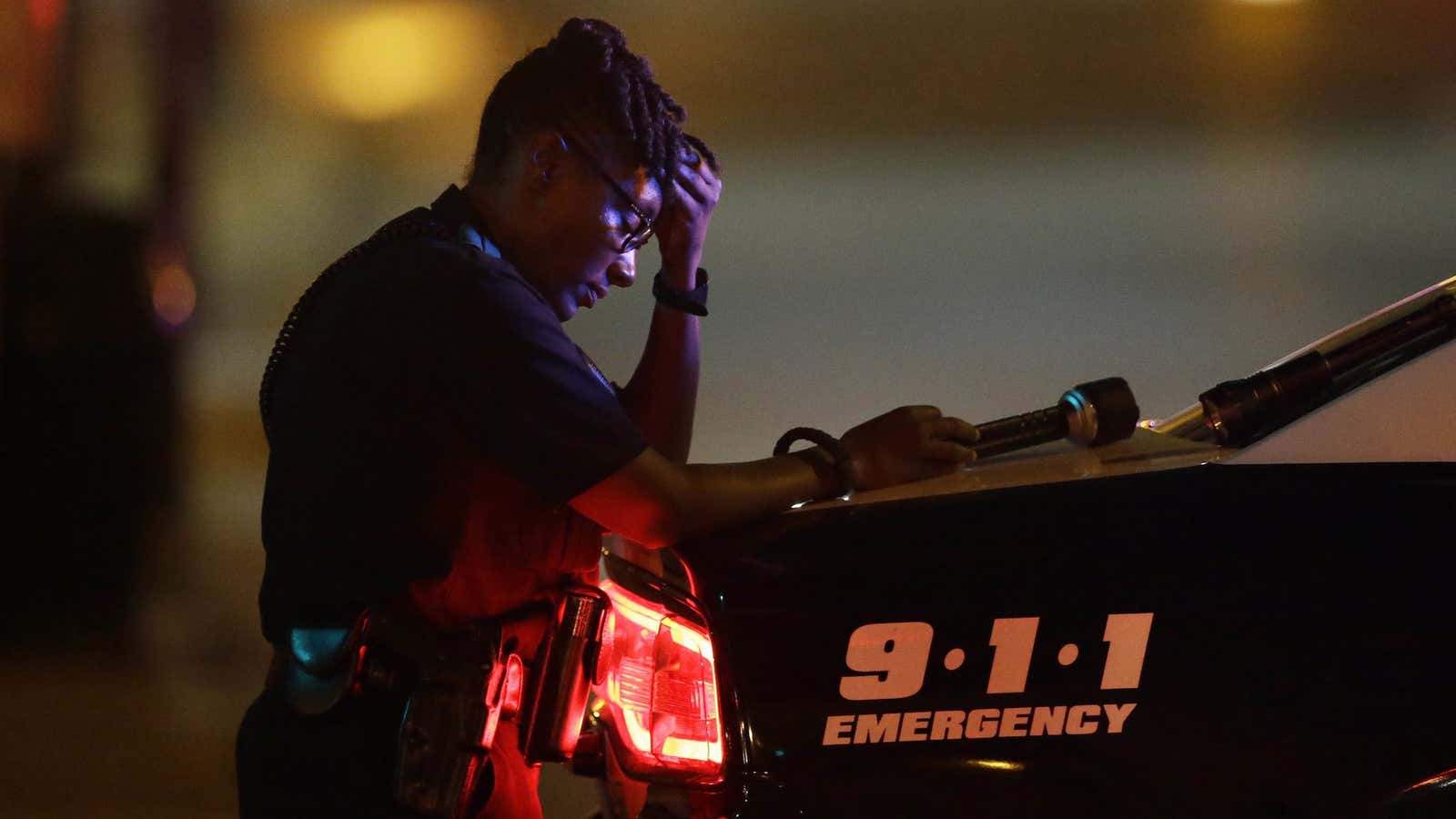Another week, another mass shooting. In the past month, the US has faced its deadliest mass shooting in modern history. And following the deaths of two black men at the hands of police, officers have since become victims of mass shootings twice in just 10 days.
The fact that mass shootings often happen in clusters has, unfortunately, been noted before. One 2015 study by Arizona State University physician Sherry Towers, who focuses on how viruses spread, found that mass shootings lead to a period of contagion for an average of 13 days after the initial event. In her research, Towers used the killings of four or more people as the definition of a mass shooting. She found that 20% to 30% of all mass shootings are such copycat incidents.
We still can’t say definitively whether mass shootings are contagious, and there’s no clear answer as to why they might be. But psychology has established that we learn behavior by watching others. Studies suggest that everything from moods to eating disorders can be contagious, as can violence. A study by Stanford University psychologist Albert Bandura in 1961 found that children who saw adults physically and verbally abusing an inflatable doll then mimicked that behavior on their own.
There’s also strong evidence to suggest that suicide is contagious. Some researchers believe mass shootings are a category of suicide contagion. A recent paper in the journal Comprehensive Psychology notes that mass shootings “are always an expression of suffering that manifests itself in a psychosocial crisis that is both homicidal and suicidal,” as the Washington Post reports.
Mass shooters often explicitly reference their admiration for previous attackers. In 2015, Mother Jones found that the perpetrators of 21 separate attacks, who collectively killed 89 people, had referenced the Columbine High School shooting. A further 53 plots prevented by police also referenced the incident. In 13 cases, the attackers said they specifically aimed to kill more people than the Columbine shooters.
Many believe that the reporting of mass shootings contributes to contagion. After all, if someone never hears about a shooting, then they can’t copy it. But in the digital age, attackers can upload their own videos, photographs and manifestos to social media rather than relying on TV to achieve notoriety. Limiting coverage of attacks is close to impossible.
Nonetheless, some people are calling on the media to reconsider how it covers mass shootings. J. Reid Meloy, a forensic psychologist in San Diego, told the New York Times that it’s best to avoid phrases like “lone wolf” that “convey a certain cool pose to young people.”
The FBI has also encouraged the media to avoid focusing too much on mass shooters, backing a campaign called “Don’t Name Them.” The goal is to discourage would-be shooters who are motivated by a desire for fame or notoriety. But Towers, who hopes to conduct further research on mass shootings, told the Washington Post that she thinks the idea is “untenable.” “First Amendment rights should not be infringed,” she added.
In Towers’ paper on the contagion of mass shootings, she notes that further research is needed to establish exactly how and why mass shooting contagion might spread. “In truth,” she writes, “and especially because so many perpetrators of these acts commit suicide, we likely may never know on a case-by-case basis who was inspired by similar prior acts, particularly since the ideation may have been subconscious.”
